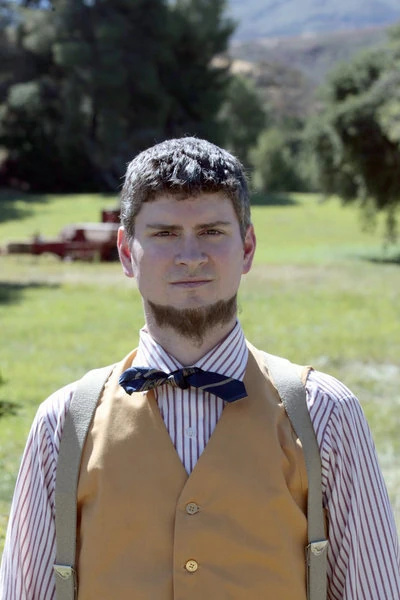How to Spot Propaganda 101
If I was a minister/secretary of education, sure.
If I was dictator of the entire country, no.
(I’d like to push my own propaganda. I’m gonna become the most benevolent dictator humanity’s ever had)
We teach this all the time, though. It’s called doing research and citing sources. There is no doubt the education system has probably failed millions of people on this and propaganda does keep getting more advanced. At the end of the day, though, it really comes down to the basics they teach in English about writing reports and making sound arguments.
To be honest, I always sucked at English, too. It wasn’t till college did it come together for me. I think it’s because we quit focusing on structure and focused solely on content. Really, though, I’m not sure what was different.
And how’s it working?
That’s right. And thus my suggestion.
I wouldn’t. I’d hire someone to do it who has deep understanding on the subject.
To be fair. That would be a first for the education system.
Financial literacy would be considered an essential subject.
This right here. My parents utterly failed to teach me financial literacy, and it wasn’t mentioned once in grade school or high school. But I learned how to stuff a pillow (why?!) and definitely got a C for frying an omelet the way I like it during a totally antiquated home economics class.
If financial literacy had been properly taught, I’m pretty sure I wouldn’t be a decade behind my contemporaries. It’s frankly a complete failure of our education system that this gap in critical knowledge hasn’t been filled.
To quote Alvin Toffler:
The new education must teach the individual how to classify and reclassify information, how to evaluate its veracity, how to change categories when necessary, how to move from the concrete to the abstract and back, how to look at problems from a new direction—how to teach himself. Tomorrow’s illiterate will not be the man who can’t read; he will be the man who has not learned how to learn.
Tech literacy, and Information Era awareness and knowledge of scams and false information.
The amount of people getting scammed or download malware is just crazy.
The problem with tech literacy is that a lot of it has a limited lifetime. Like, you have N hours to spend on education, and when I look at the material that schools cover, I think that most of it is at least intended to be more “timeless” – that is, you should still be able to make use of it as a retiree.
Also, at least some of those are, I think, really better addressed by technical fixes to existing systems. Like, okay, having smartphone-OS-style sandboxed applications being the norm for a lot of software on the desktop might do a good deal to improve things.
I would add communication, business writing and problem solving to the existing curriculum. They are the biggest deficits I see in new grads (even liberal arts).
The even liberal arts thing made me spit my coffee.
They are often smart, talented people, but lack the skills to operate in a business (business writing, comms, etc.). We recruit, then train the heck out of them and have had good outcomes.
business writing
I don’t know if this is still a problem, but I remember reading that some decades back, a number of companies had problems with people writing absolutely unusable emails.
The problem, as I recall it being presented, was that historically the norm had that you’d have a secretary take dictation. That secretary was basically a professional writer, and would clean up all the memos and whatever that went out.
But at some point, companies generally decided that people should just be emailing each other directly. Now you weren’t dictating to a secretary. You were typing an email yourself. The problem is that this meant that there were suddenly a lot of people who had relied on secretaries to clean things up for many years who had had no practice and were suddenly writing their own material…and it was horrendous.
I’d guess that that was probably some twenty years ago now, at least, so maybe the problem has aged out.
Sadly, it has not gotten better. It is something I actively have to train people when they join our company.
Business writing is like the one thing LMMs have actually made useless
Hard disagree. That would require a library of well written emails to reference (which, in my experience are not very common).
More art classes
I would teach critical thinking, probability, empathy and logic more
If religion is going to be involved, they all need to be included equally
deleted by creator
Is there enough days in the semester? They can’t get away without representing my religion. That is church of the big sleep. Let’s face it, we will spend more time dead than alive so our natural condition must be closer to sleeping then it is being awake in this chaotic ooze called life. It’s obvious to me that life is abnormal and we should all use this time to better navigate our dreams and others sleep states because that will better prepare us for what’s to come.
I’ve been done with education for longer than I’ve been in education.
I hope kids nowdays get a well rounded education that is not just the bare necessities of read/write/count but if I had to make a choice I’d prioritize STEM over humanities.
I’d rather live in a boring world with too little music, literature and art where my car works and I’ve got water in the tap than the opposite.
I think I’d keep a lot of the core stuff, esspecially at lower levels, but at mid levels, I’d try and put a lot less emphasis on academic work, and more on practical implementation of those skills. For example, in place of a study of shakesphere, I might put a lesson on how ads are written. The point would still be to encourage better media literacy, but ads are something we see constantly in the modern world, and require an emphasis on critical thinking most literature analysis ignores. Another example might be a reduction in the amount of math classes, but requiring a skill that uses math practically, such as woodworking or 3D modeling, to try and practice logic and problem solving off-the-page.
Ideally, this would help cover a lot more real-world skills, and give students a chance to try a broader range of fields earlier, as well and encouraging a deeper and more applicable understanding of the underlying skills meant to be taught.
Some of this may have changed, but relative to when I went to school in the US?
Primary education
-
I’d remove cursive if it’s still being taught. I’ve read some articles saying that it still was in Canada, don’t know about the US. It has very limited uses – it’s optimized for being faster for writing a lot of text than printing, but if I’m going to be doing a lot of text, I’m going to be typing, not writing it longhand.
kagis
https://www.livenowfox.com/news/us-states-require-cursive-handwriting-students
California and New Hampshire became the most recent states to pass legislation making cursive handwriting instruction mandatory. At least 25 other states require a similar form of instruction in schools, and another five states have legislation pending, according to data tracked by the American Handwriting Analysis Foundation.
Sounds like it’s still in the curriculum.
-
On that note, typing. We did have minimal typing, but that is important, and I was still hunting-and-pecking until sometime in secondary education when I forced myself to switch over to touch typing.
-
I’d kill arts and crafts. Very few of the things that I actually did were things that were likely to be practical to build on. I’m dubious as to traditional media graphics being a core part of any curriculum – later in life, someone is a lot more likely to be professionally doing graphic arts on a computer.
-
Start math earlier. I was in two different school systems, and one pushed math harder and earlier. The kids there did much better on mathematics topics.
-
I have no idea what the state of computer application education is today, and I assume that it’s changed. Back when I was in primary school, there were too few computers available to teach the stuff, and we had very brief coverage in secondary education. I would hope that at this point, kids in primary education get some kind of coverage of text editing – I don’t know about word processing, which was kind of tied to paper documents, which are certainly less common these days – spreadsheets (or some kind of functionally-equivalent system), graphic design software, web browser use, and email. I’d assume that many people will learn this at home, but you’d be kind of disadvantaged in a number of fields if you don’t pick it up.
Secondary education
-
More statistics. I saw one half-class as an elective at my school. This has been maybe one of the major things that I regret not having spent time picking up earlier and more of, and I’m pretty sure that a number of people don’t get basic statistics, based on the number of times I’ve seen arguments where people don’t believe polls because nobody’s ever introduced them to sampling.
-
Less calculus. The concepts are important; doing manual integration of symbolic equations is not, and that’s what I spent a lot of time in calculus on. When I went through, calculus was kind of the standard “mainline” math class if one wanted to take more math. I think in total I took three or four calculus classes in secondary and tertiary education, which is just excessive for nearly all fields, and a lot of what I was doing was not a great use of time in terms of even learning calculus. I remember that being absolutely driven home when I stopped by the office of the husband of the of one of my calculus professors once with a question about a project I was doing – he was also a mathematics professor – and watched him pull out Mathematica to do a simple integration. I asked him about it – I mean, the guy was married to a calculus professor, had a PhD in math – and he said “nobody has time to waste doing manual integration”. I can run the open-source Maxima package on my phone and desktop today, and it can do symbolic integration. There is no reason to have blown all the time I did manually doing calculus problems.
Sorry, bit of a pet peeve.
-
Personal finance should be included.
-
I did not like the history curriculum in my secondary education at all. It was overwhelmingly rote memorization. The textbook was pretty decent – though we only covered a fraction of it, but I read through the rest and liked it. It wasn’t until I got to tertiary education that I had what I’d call a good history class – there was little memorization, and one mostly read content, discussed it, and wrote papers on it. Granted, that takes longer to grade, but there has to be some kind of way to improve on memorization. Today, I really enjoy a lot of history.
-
My home economics class was, as I recall, mostly cooking, sewing, and arts and crafts. The cooking was useful, the clothing repair was minimally useful, and the arts and crafts were a waste of time.
-
I don’t know how to fix it, but I think that literature was horrible. I read some of the books that were covered in literature classes prior to those classes and enjoyed them. Reading the same books later for school was a miserable experience.
-
I took a speech class that had a segment on propaganda techniques, to try to make people aware of them in their environment. I think was a good idea. I would guess that this isn’t widely available.
-
I’d like to see at least some form of basic economics at the secondary level. When I went through, economics was something that one only saw during tertiary education, not secondary.
-
I personally felt a bit overwhelmed when I hit formal proofs in tertiary education, as I hadn’t had much coverage in secondary education – IIRC, that was basically a portion of eighth-grade geometry. A friend had gone to a high school that provided much better coverage. Not all fields of study are going to require it, but I wish that I’d had more coverage in secondary education.
-
My secondary education did not offer coverage in some of the physics material, like electromagnetism, that I know that some schools do, which I regretted not having available.
In general, I feel like I learned more in tertiary education than I did in secondary education per hour spent. On the other hand, I think that some of that was because the tertiary education curriculum was more self-driven and harder to grade. If you want to do that, that is going to add cost. Looking back, I kind of wish that my secondary education was generally closer to tertiary – more self-driven projects and such.
Tertiary education
My guess is that this differs a lot from person to person. I think that it’s harder to make recommendations that would apply to many people. I also think that in general, my tertiary education made better use of time than my primary or secondary education did – less that I’d change.
-
To fill an apparently-unrelated prerequisite, I took a class that covered some law, though I didn’t formally study law, and found that I picked up a lot of stuff that helped me understand what was going on later in life. I think that a lot of people would benefit from a low-level law course or two. It is not something that I would have planned for myself, but if I could go back in time, I think I would have told young me to go for it.
I’d also add that the criminal law textbook we used was one of my favorite textbooks – it was dense from an information standpoint, and easy to understand.
Overall
-
I have found that the wiki-style hypertext format plus having a browser with search engine available to work very well for learning material. I much prefer it to doing a linear run through a textbook. I think that it’s far preferable to listening to lectures, which run at real time (so you can’t easily slow if something’s confusing, and can’t zip through things that you already understand). I wish that tons of material had been available in that format when I was a kid, and think that more emphasis should be given it in education, if that isn’t already the case today.
-
Generally-speaking, I think that listening to lectures, especially in tertiary education, was a waste of time. I can get the same material more-quickly reading on my own than listening to someone do an ad-hoc presentation. Just assign the reading and have some kind of forum for taking questions.
-
In the US, I would make history part of the standardized testing done by states and make it part of SAT/ACT tests. Too often it’s a neglected subject even though there are many valuable lessons from it.
Same with government class. People need to understand how government works, how to get involved, how to vote. Make high school students attend a court trial one week as part of their class. Make them vote in a mock election using the actual voting equipment used in elections.
I think it helps to stop thinking of the subjects as silos. I teach science in a way that calls on writing skills (and I throw in lots of history of science references).
I’ve worked with students on all subjects and grades. In my teaching, the best experiences I have had have had two features:
-
small group size (working with a kid one on one is god tier - today me and student ended up chatting about video games, and I got to talk about the historical context of the Assassin’s Creed series/how Dragon Ball is inspired by the Journey to the West)
-
teacher autonomy - being able to pivot from curriculum that doesn’t work, being able to work with students to accept multiple forms of representation
I think both of these factors are the root problems. It’s not about “what” we are teaching them, it is that we are herding them through school buildings like cattle and flashing “educational content” at them through laptop screens. Switching the videos they are watching isn’t going to fix the problem.
Like, when it comes to learning to read - it does not matter what the kid likes to read. All reading is good reading. You build your curriculum around books they like and engage with. If you build reading skills, so much of the rest can follow.
-
Maybe not a direct answer to your question but I’d try to keep it the lowest number of subjects at any given time with deeper learning in them.
In school I was genuinely interested in learning, but every instructor seemed to hand you a mountain of homework each day and acted like their subject was the most important. I spent most my time scrambling to get it all done and in the end only learned what little I could to simply pass.
I remember this especially with math, I loved math but if I took the time to study better and actually learn the concepts, I wouldn’t have had the time to finish my other homework.
I’m not sure if there needs to be fewer subjects, but I feel like there should be much more focus on why what students are learning matters. Passing a standardized test is not a goal kids care about. This invariably has to be at the expense of rote information since there is only so much time, though I think that is a worthwhile trade.
Nobody cares about the exact year that Mehmet II conquered Constantinople. But the impact of that on world history is both interesting and significant. I only had one history teacher before college who told students he didn’t care about exact years; if you could give the general period that was sufficient.











